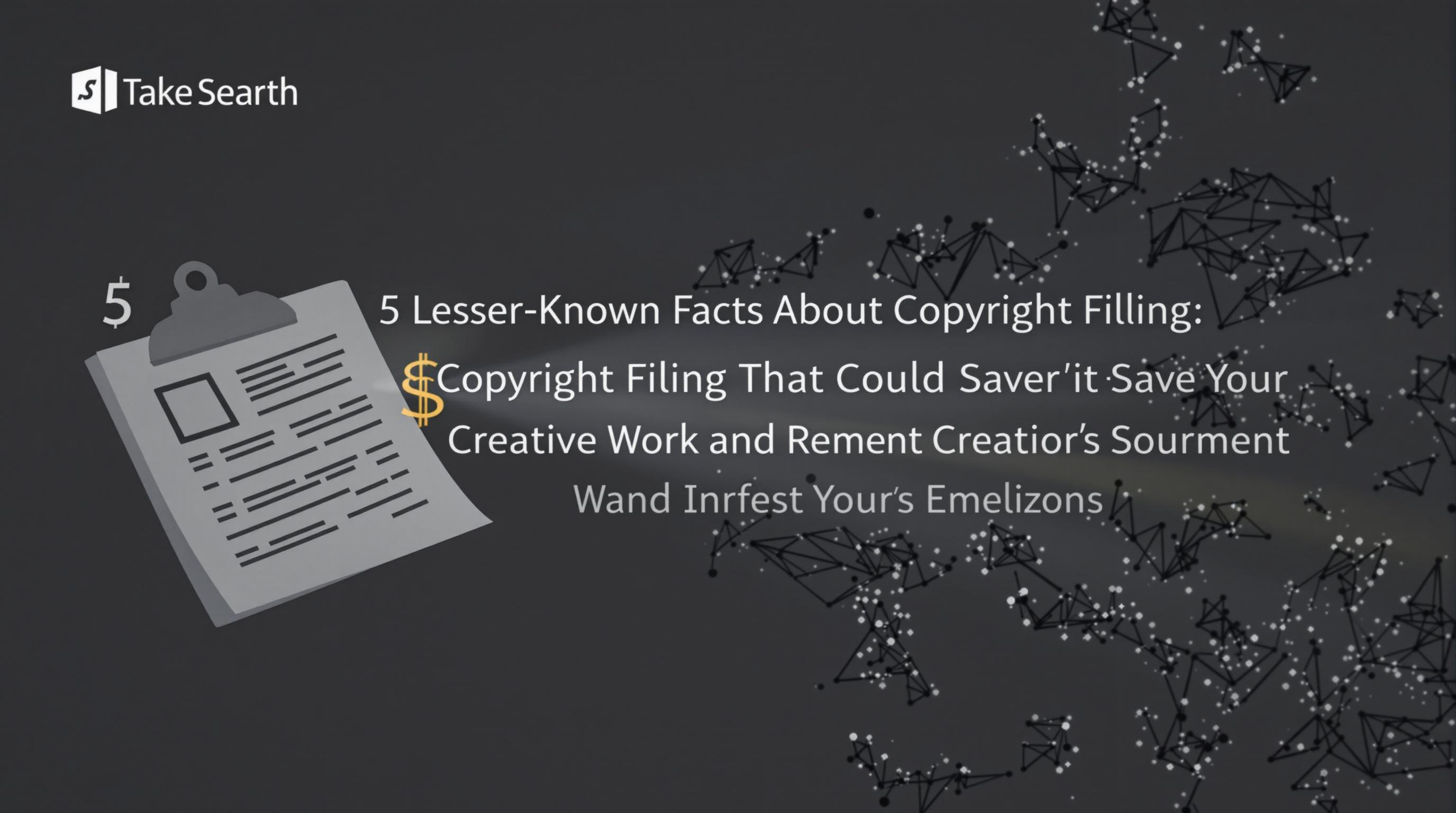Related Articles
- 7 Essential Digital Copyright Tools Revolutionizing Creative Protection Since 2019
- 7 Emerging AI-Powered Dispute Resolution Platforms Revolutionizing Conflict Management Since 2019
- 7 Cutting-Edge Insurance Apps Launched Since 2019 That Are Revolutionizing Coverage Verification
- 7 Cutting-Edge Workforce Management Tools Revolutionizing Employee Classification Efficiency in 2024
- Top 6 Innovative Lease Management Softwares Redefining Contract Control Since 2019
- Unveiling Overlooked Barriers: How ADA Rules Shape Access in Virtual Reality and Digital Worlds
5 Lesser-Known Facts About Copyright Filing That Could Save Your Creative Work and Boost Your Earnings
5 Lesser-Known Facts About Copyright Filing That Could Save Your Creative Work and Boost Your Earnings
5 Lesser-Known Facts About Copyright Filing That Could Save Your Creative Work and Boost Your Earnings
1. Registering Early Provides Legal Advantages
Many creators assume that simply creating a work automatically protects it, but formal copyright registration offers significant benefits. Registering your work early ensures you are eligible for statutory damages and attorney's fees if you ever need to enforce your rights in court. This means that beyond stopping unauthorized use, you could recover financial losses more effectively.
Additionally, early registration establishes a public record of your copyright, which can deter potential infringers by signaling you are serious about protecting your rights. In contrast, waiting until after infringement occurs could limit your legal remedies and affect your earning potential.
According to the U.S. Copyright Office, registering within five years of publication is considered prima facie evidence of the validity of your copyright, which strengthens your protection in litigation. It's a small but powerful step to safeguard your creative investments.
2. You Can Register Multiple Works in a Single Application
Many creators don’t realize that the U.S. Copyright Office allows for group registration of certain types of works, such as photographs or unpublished works created by the same author. This option can reduce filing fees and administrative hassle, making the process more affordable.
For example, if you are a photographer who produces numerous images, you can file a single application covering a batch of photos, rather than submitting separate applications for each one. This streamlines copyright protection without sacrificing legal benefits.
Nevertheless, the works must meet specific criteria to qualify for group registration, including common authorship and similar content. Reviewing these requirements before filing can save costs and ensure your entire portfolio is adequately protected.
3. Copyright Protection Extends to Digital Formats Automatically
One misconception that hinders creators is the belief that copyright registration is different for digital works. In reality, copyright law automatically applies to digital creations once fixed in a tangible medium, including online content, software, and digital art.
However, formal registration can be particularly valuable for digital works because they are easy to copy and distribute illegally. Registered works receive stronger protection ahead of potential infringement from widespread internet sharing.
Various digital platforms also respect registered copyrights more strictly, which can translate to takedown actions or revenue recovery through digital rights management. This highlights the synergy between technical and legal protections for online creations.
4. You Can Register Derivative Works Separately
Derivative works—such as translations, adaptations, or sequels—may qualify for their own copyright protection if they add originality beyond the original work. Many creators are unaware that these improvements or adaptations should be registered independently to secure rights.
Registering a derivative work not only protects your new creative contribution but also establishes a clearer financial control over licensing or sales related to that version. This can increase your earning potential while respecting the original creator's rights.
It's important to note that registering a derivative work does not affect the copyright of the underlying original work, which remains protected separately. Understanding this distinction ensures creators and business owners optimize their copyright strategies fully.
5. Registration Enables International Protection Through Treaties
While copyright is territorial by nature, registering in the U.S. and other jurisdictions can facilitate protection abroad thanks to international treaties like the Berne Convention. These agreements ensure that copyright holders receive recognition and basic rights in member countries.
Filing a timely copyright registration can serve as strong evidence when enforcing rights internationally, especially in countries where local laws may require proof of formal registration to initiate legal action.
Creators aiming to monetize their work globally should leverage both U.S. registration and knowledge of treaty provisions to maximize revenue streams and reduce piracy risks worldwide.

